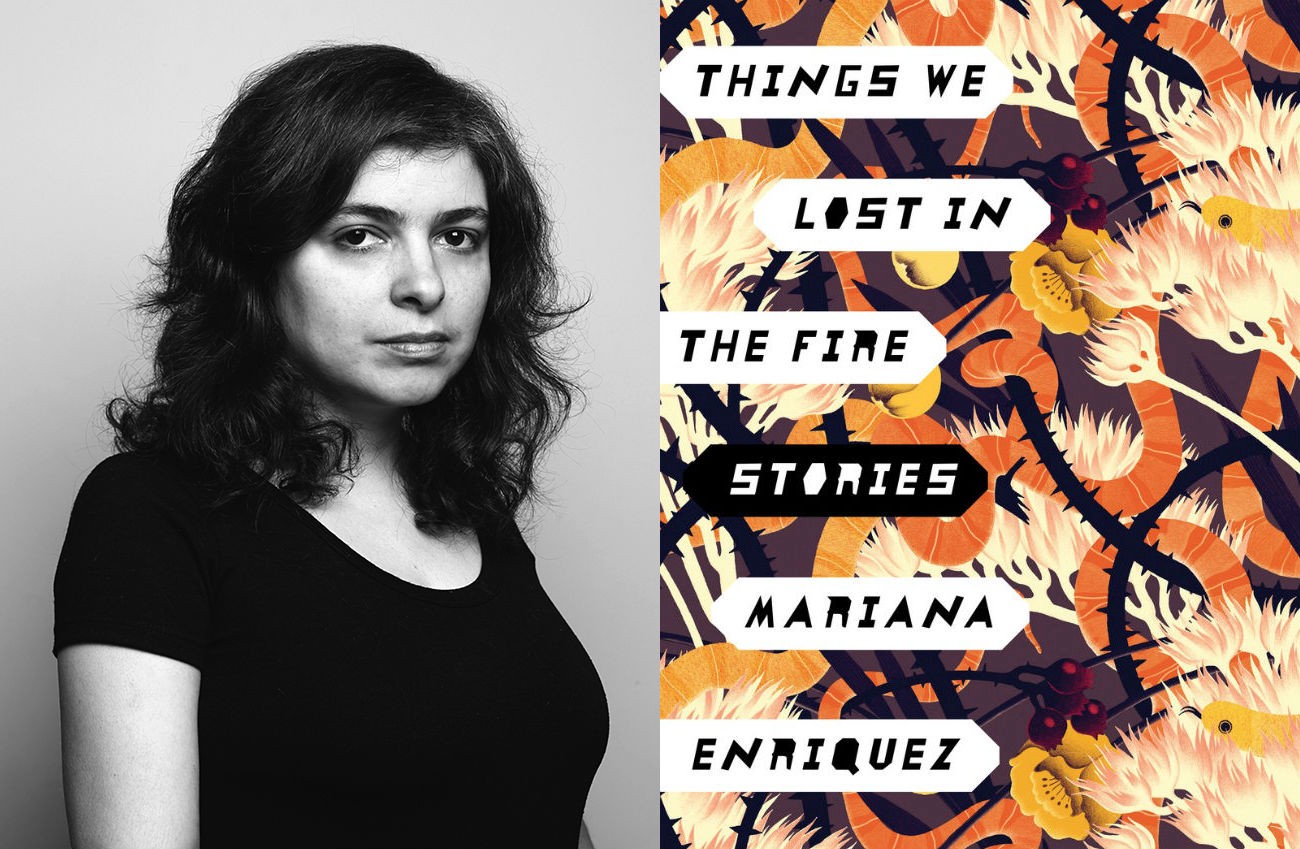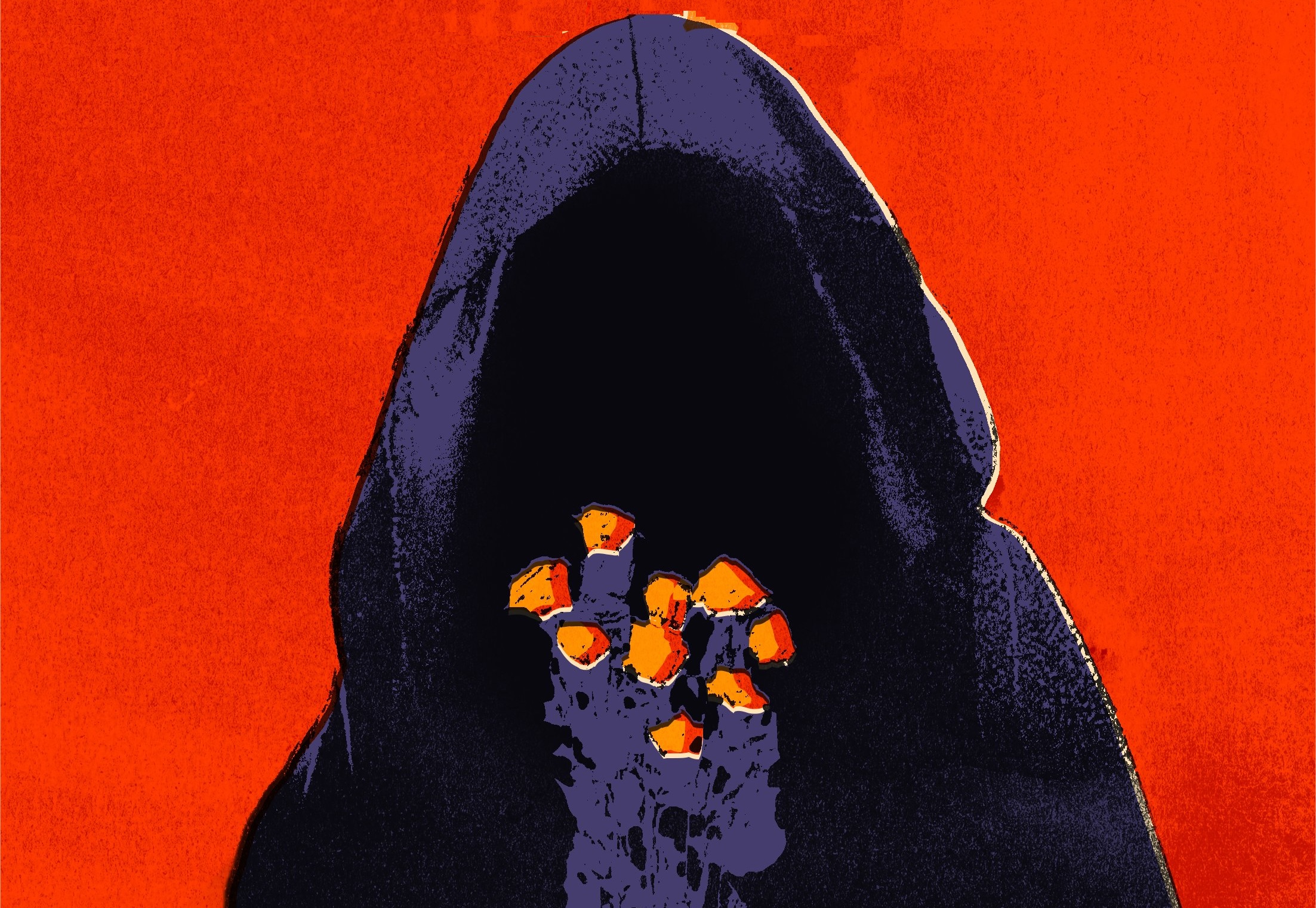Books & Culture
The Dark Themes of Mariana Enriquez
The author of ‘Things We Lost in the Fire’ on horror, fantasy and Argentina’s real-life atrocities

Mariana Enriquez’ mesmerizing short story collection, Things We Lost in the Fire, is filled with vibrant depictions of her native Argentina, mostly Buenos Aires, as well as some ventures to surrounding countries. The journalist and author fills the dozen stories with compelling figures in haunting stories that evaluate inequality, violence, and corruption. Characters range from social workers to street dwellers to users of dark magic. Through them, Enriquez explores tourism in Argentina, the rich visiting the slums, plus so many more dynamic perspectives on her home country.
I interviewed Enriquez via email; I wrote to her in English and she responded in Spanish, with Jill Swanson then translating. We discussed Argentina as a country and a character, the place of politics in literature, and what inspires Enriquez when she’s working on a story.
Adam Vitcavage: This short story collection has a lot of reoccurring themes related to the horrific and the mysterious. What about these themes excite you?
Mariana Enriquez: When I was a girl, the first things I read were horror and fantasy. I like these genres for various reasons: they’re popular and entertaining, and at the same time they’re very profound. Fear is one of the most powerful and motivating emotions. You can be afraid of a monster and fear can also turn you into a monster. The themes of horror and fantasy work for me in two ways. First, people like these genres, they’re popular. It’s interesting to me that there can be a certain disdain for what’s popular, but I reject that, that’s an elitist way of thinking. Second, these genres are literary.
The tradition of horror and mystery stories fascinates me. They’re ancient, they’re the stories we told orally. Fairy tales are the ancestors of scary tales. These genres are emotive and consider sensitivity and feeling. I like dark themes, and I would say that it’s my way of looking at things.
Vitcavage: Can you pick one of the stories and explain how you came up with the idea and then how you crafted it into a short story?
Enriquez: Sure, for example, “Under the Black Water” was inspired by a true story of police violence. A few years ago in Buenos Aires, two policemen detained two poor, young men who were coming back from a night club. They physically abused them and threw them in the Riachuelo River. This river has been polluted for many years, just as I reference in my story. Currently, they’re trying to clean it up, but it will take decades. The contamination is due to the factories and slaughterhouses on the shores of the Riachuelo that dump their waste into the river, polluting it. These industries run unregulated by the State. The river is sort of a symbol of carelessness and corruption. Additionally, the river marks the geographical limit between the city of Buenos Aires and what we call Gran Buenos Aires, or the suburbs. On the river banks, there are also many slums. In the end, one of the young boys drowned in the river. I was struck by the cruelty of those police officers. It’s one thing to mistreat and scare a young man, but it’s a very different thing to throw him into that hellish river.
I used this incident, making minor modifications, as the point of departure for the rest of my story. Later on, the ideas of Evil and the dead river become an homage to Lovecraft and his unpublished works, mixed with my interpretations of Laird Barron. I also draw inspiration from Alan Moore and his idea of evil as a form of social hygiene in the context of inequality and institutionalized violence. That’s roughly the mechanism of my stories, I get my inspiration from a real life event and then I transform it into something fantastical or supernatural.
Vitcavage: What are some of the difficulties or obstacles you encounter while writing a short story?
Enriquez: Time! I work as a journalist and it’s difficult to find the time to write. It’s also challenging to not be repetitive. I want my stories to have an air of familiarity, especially those in a collection or in a book. But I have to be careful that my personal passions and obsessions don’t take over my stories and make them all sound too similar.
Vitcavage: When you’re writing, do you primarily write for an Argentinian audience, or do you consider that your works will end up in English at some point, read by Americans as well as the rest of the world?
Enriquez: I always write for myself. That is to say — I primarily write thinking about Argentina, and in a larger context about Latin America, because we share many similar realities. The truth is that I don’t think too much about readers from any part of the world. Argentina is a theme and a character in my stories. I write for myself, thinking about my country and its reality. I don’t go beyond that.
“Argentina is a theme and a character in my stories. I write for myself, thinking about my country and its reality.”
Vitcavage: It seems, in America at least, that we can’t talk about anything without talking about politics. What is the relationship like in Argentina between politics and literature?
Enriquez: In Argentina everything is political. I’ve traveled just a bit in the United States, but I have a few friends there. I sincerely believe that they don’t have a true idea of what it is like to live in a highly politicized society. Maybe in the past few years politicization has become more pronounced there; but in Argentina, politics has always dominated public discourse. Argentinean literature, especially what’s been written within the last forty years, after the dictatorship, is profoundly political. The dictatorship killed or helped to make important Argentinean writers disappear, like Haroldo Conti, Rodolfo Walsh, and Paco Urondo. Just a while ago an English work of Antonio Di Benedetto was recovered. Benedetto was tortured by the dictator’s militia — they faked his execution and he suffered a great deal. His life and works were never the same after that.
Dissipation and Disenchantment: The Writing Life in Argentina in the 1990s
Vitcavage: Since you’re a journalist as well, is there a sense of need when it comes to including political commentary within your fiction?
Enriquez: No, there’s not. I’m a cultural journalist. I live between movies, celebrities, music, and theatre. I don’t have much contact with reality in my journalism. I would say that my socio-political commentary comes more from my experience as a citizen than it does from my career as a journalist.
Vitcavage: What can readers learn about Argentina from your stories?
Enriquez: I don’t know. I don’t write pedagogically. But I think that readers can gather that Argentina is a diverse and unequal society.
Vitcavage: Who are some other Argentinian writers that readers should explore?
Enriquez: Of the authors I know who have works translated in English, there are Di Benedetto, Silvina Ocampo, Manuel Puig, Ricardo Piglia, and Julio Cortázar, who is very famous. I hope they’ve also translated works by Roberto Arlt into English, he was great. Other contemporary authors to look for are Leila Guerriero, Samanta Schweblin, Juan José Saer, Hernán Ronsino, Liliana Bodoc, Rodrigo Fresán, and Hebe Uhart. Every author is very different but they account for the wide breadth of current Argentinian literature.
Vitcavage: What are you working on next? Novel, short story collection, a long investigative non-fiction book?
Enriquez: A very long and complex novel, but I can’t tell you more than that. And I’m always writing stories, they’re like my escape. So you could say that I’m working on a novel and on another short story book.









